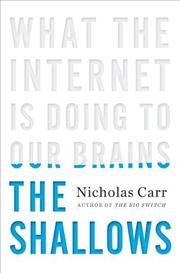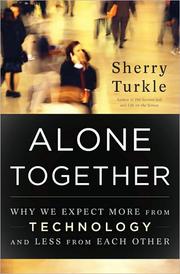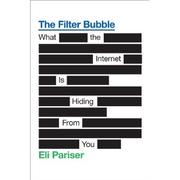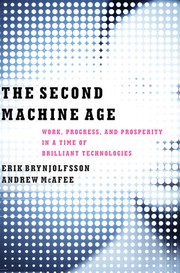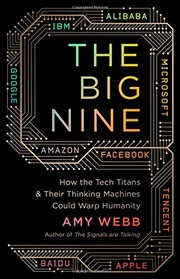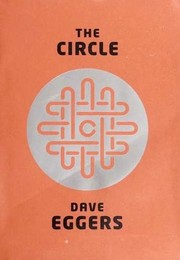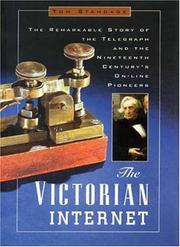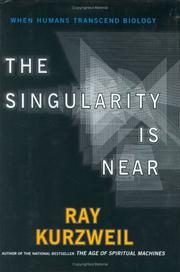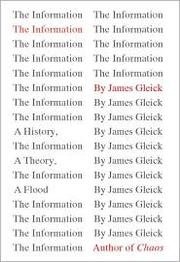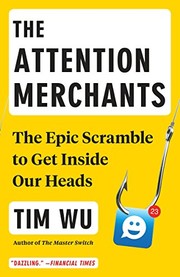Are you curious about the impact of technology on our society? Look no further! We’ve curated a list of the 20 best books on technology and society that will enlighten and provoke your thoughts on this ever-evolving relationship. From exploring the ethical implications of AI to dissecting the effects of social media on our daily lives, these books offer insightful perspectives on the intersection of technology and society. Whether you’re a tech enthusiast or a social observer, these technology and society books will undoubtedly broaden your understanding of our digital world.
Contents
- 1 20 Best Technology And Society Books
- 2 The Shallows: What the Internet Is Doing to Our Brains
- 3 Weapons of Math Destruction: How Big Data Increases Inequality and Threatens Democracy
- 4 Alone Together: Why We Expect More from Technology and Less from Each Other
- 5 The Age of Surveillance Capitalism: The Fight for a Human Future at the New Frontier of Power
- 6 The Filter Bubble: How the New Personalized Web Is Changing What We Read and How We Think
- 7 The Code Book: The Science of Secrecy from Ancient Egypt to Quantum Cryptography
- 8 The Innovators: How a Group of Hackers, Geniuses, and Geeks Created the Digital Revolution
- 9 The Glass Cage: Automation and Us
- 10 The Second Machine Age: Work, Progress, and Prosperity in a Time of Brilliant Technologies
- 11 The Big Nine: How the Tech Titans and Their Thinking Machines Could Warp Humanity
- 12 The Circle
- 13 The Victorian Internet: The Remarkable Story of the Telegraph and the Nineteenth Century’s On-line Pioneers
- 14 The Master Algorithm: How the Quest for the Ultimate Learning Machine Will Remake Our World
- 15 The Singularity Is Near: When Humans Transcend Biology
- 16 The Information: A History, a Theory, a Flood
- 17 The Fourth Industrial Revolution
- 18 The Attention Merchants: The Epic Scramble to Get Inside Our Heads
- 19 The Innovators Dilemma: When New Technologies Cause Great Firms to Fail
- 20 Sapiens: A Brief History of Humankind
- 21 Data and Goliath: The Hidden Battles to Collect Your Data and Control Your World
- 22 Final Thoughts on Best Technology And Society Books
- 23
20 Best Technology And Society Books
The Shallows: What the Internet Is Doing to Our Brains
by Nicholas Carr
The Shallows: What the Internet Is Doing to Our Brains, written by Nicholas Carr, is a thought-provoking book on technology and society. Carr explores the impact of the internet on our brains, arguing that the constant distractions and rapid-fire information overload that the internet provides is rewiring our brains in ways that are detrimental to our ability to concentrate and think deeply. He delves into the history of communication technology, from the invention of the printing press to the rise of the internet, and examines how each new medium has shaped the way we think and process information.
Through compelling research and engaging storytelling, Carr challenges readers to consider the long-term effects of our digital habits and urges us to take a more mindful approach to our use of technology. The book about technology and society raises important questions about the trade-offs we make in the digital age and offers valuable insights into the ways in which our brains are being shaped by the technology we use every day.
Weapons of Math Destruction: How Big Data Increases Inequality and Threatens Democracy
by Cathy O’Neil
Weapons of Math Destruction: How Big Data Increases Inequality and Threatens Democracy by Cathy O’Neil is a thought-provoking book on the impact of big data and algorithms on society. O’Neil, a mathematician and data scientist, explores how the use of algorithms in various sectors, from education and employment to criminal justice and finance, can perpetuate inequality and injustice.
Through engaging storytelling and in-depth analysis, O’Neil reveals how these “weapons of math destruction” can reinforce biases, discriminate against certain groups, and amplify social disparities. She argues that the reliance on big data and opaque algorithms can erode democracy and individual autonomy, creating a system that benefits the privileged few at the expense of the marginalized many.
This book about technology and society challenges readers to critically examine the impact of data-driven decision-making and calls for greater transparency, accountability, and ethical considerations in the use of algorithms. Weapons of Math Destruction is a must-read for anyone interested in understanding the intersection of technology and society and the potential consequences of unchecked algorithmic power.
Alone Together: Why We Expect More from Technology and Less from Each Other
by Sherry Turkle
Alone Together: Why We Expect More from Technology and Less from Each Other by Sherry Turkle is a thought-provoking book about technology and society. Turkle, a renowned psychologist and technology expert, delves into the impact of our increasing reliance on digital devices and social media on our relationships and sense of self. She argues that while technology promises to connect us, it often leaves us feeling more isolated and disconnected from real human interaction.
Turkle’s research, based on interviews with hundreds of people, reveals the complexities of our relationship with technology and the ways it shapes our behavior and emotions. She explores the phenomenon of feeling alone while constantly connected and the impact of technology on our ability to empathize and communicate effectively. The book on technology and society also provides insight into the implications of these trends for the future of relationships, education, and work.
Alone Together offers a compelling and urgent perspective on the intersection of technology and society, challenging readers to consider the effects of our digital lives on our humanity.
The Age of Surveillance Capitalism: The Fight for a Human Future at the New Frontier of Power
by Shoshana Zuboff
The Age of Surveillance Capitalism by Shoshana Zuboff is a groundbreaking book on technology and society that delves into the implications of the digital age on our lives. Zuboff explores the rise of surveillance capitalism, where technology companies exploit personal data for profit, leading to a profound shift in power dynamics. She argues that this new form of capitalism is reshaping our society, economy, and even our very way of being.
Zuboff’s analysis is both comprehensive and thought-provoking as she examines the ways in which surveillance capitalism impacts our privacy, democracy, and human autonomy. She also offers a compelling critique of the tech giants and their role in this new era of data-driven capitalism.
This technology and society book is a wake-up call, urging readers to consider the societal implications of our digital interactions and to reclaim control over our personal data and digital identities. The Age of Surveillance Capitalism is a must-read for anyone interested in understanding the intersection of technology and society in the 21st century.
The Filter Bubble: How the New Personalized Web Is Changing What We Read and How We Think
by Eli Pariser
The Filter Bubble: How the New Personalized Web Is Changing What We Read and How We Think by Eli Pariser is a thought-provoking book on the impact of personalized algorithms on our online experiences. Pariser delves into the ways in which the internet, with its tailored content and search results, is shaping our worldview and influencing our thoughts and opinions. This book about technology and society raises important questions about the consequences of living in a filtered online environment, where we are only exposed to information that aligns with our existing beliefs and preferences.
Through engaging examples and well-researched insights, Pariser challenges readers to consider the implications of a technology and society book that caters to our individual interests, potentially limiting our exposure to diverse perspectives and critical thinking. The Filter Bubble is a must-read for anyone interested in understanding how the personalized web is shaping our reading habits and influencing our cognitive processes.
The Code Book: The Science of Secrecy from Ancient Egypt to Quantum Cryptography
by Simon Singh
The Code Book by Simon Singh is a fascinating exploration of the history and development of cryptography, the art of secret writing. This captivating book on technology and society takes readers on a journey through ancient civilizations, where secret codes and ciphers were used to protect sensitive information, to the modern world of quantum cryptography. Singh delves into the stories of codebreakers and their incredible feats, from breaking the Enigma machine during World War II to the ongoing battle between cryptographers and hackers in the digital age.
Throughout the book about technology and society, Singh skillfully weaves together the science, history, and human drama behind the evolution of codes and codebreaking. From the significance of the Rosetta Stone to the intricacies of public key cryptography, he presents complex concepts in an accessible and engaging manner. The Code Book is a must-read for anyone interested in the intersection of technology and society, as it highlights the profound impact of cryptography on our world and the ongoing struggle between secrecy and security.
The Innovators: How a Group of Hackers, Geniuses, and Geeks Created the Digital Revolution
by Walter Isaacson
The Innovators: How a Group of Hackers, Geniuses, and Geeks Created the Digital Revolution by Walter Isaacson is a fascinating book on technology and society that delves into the history of the digital revolution. Isaacson explores the collaborative efforts of individuals such as Ada Lovelace, Alan Turing, Steve Jobs, and Bill Gates, highlighting their contributions to the development of computers, software, and the internet. Through engaging storytelling, he demonstrates how innovation is often the result of teamwork, rather than the work of lone geniuses.
Isaacson also examines the societal impact of these technological advancements, discussing how they have transformed communication, entertainment, and business. By weaving together the stories of these innovators, he provides a comprehensive overview of the evolution of the digital world and the profound influence it has had on society.
Whether you’re a tech enthusiast or simply curious about the history of the digital age, this book about technology and society is a compelling read that offers valuable insights into the interconnected nature of technology and society.
The Glass Cage: Automation and Us
by Nicholas Carr
The Glass Cage: Automation and Us by Nicholas Carr is a thought-provoking exploration of the impact of automation on our lives. In this compelling book about technology and society, Carr delves into the ways in which automation is shaping our world, from self-driving cars to automated medical diagnosis. He argues that as our reliance on technology increases, we are becoming disconnected from the physical and emotional experiences that make us human. Carr raises important questions about the consequences of handing over control to machines and the potential loss of skills and expertise in the process.
Through engaging storytelling and compelling evidence, Carr challenges readers to consider the implications of our increasingly automated world. The Glass Cage is a must-read for anyone interested in the intersection of technology and society, and it offers valuable insights into the complexities of our relationship with automation. Whether you’re a technology enthusiast or a skeptic, this book on technology and society will leave you with a deeper understanding of the impact of automation on our lives.
The Second Machine Age: Work, Progress, and Prosperity in a Time of Brilliant Technologies
by Erik Brynjolfsson and Andrew McAfee
The Second Machine Age: Work, Progress, and Prosperity in a Time of Brilliant Technologies by Erik Brynjolfsson and Andrew McAfee is a thought-provoking book on technology and society that explores the impact of the digital revolution on our lives and the economy. The authors argue that we are living in a time of unprecedented technological advancement, where machines are not just automating routine tasks, but also becoming capable of cognitive tasks, leading to massive shifts in the way we work and live.
Brynjolfsson and McAfee delve into the potential of these advancements to create prosperity and progress, but also highlight the challenges that come with it, such as income inequality and job displacement. They offer insights on how individuals, businesses, and governments can navigate this new era to ensure that the benefits of technology and society are shared by all. Through engaging storytelling and compelling evidence, the authors make a compelling case for embracing the opportunities presented by the book about technology and society while also addressing its potential downsides. This technology and society book is a must-read for anyone interested in understanding the impact of digital technologies on our world.
The Big Nine: How the Tech Titans and Their Thinking Machines Could Warp Humanity
by Amy Webb
The Big Nine by Amy Webb is a thought-provoking book on technology and society that delves into the potential impact of the world’s most influential tech companies and their development of AI. Webb takes readers on a fascinating journey through the power dynamics of the “Big Nine” tech titans, including Google, Amazon, and Facebook, and explores the implications of their increasing control over the future of AI.
Through meticulous research and insightful analysis, Webb paints a compelling picture of the ways in which AI could shape the future of humanity, from job automation and economic inequality to the potential for bias and discrimination in AI systems. With a keen eye for detail and a deep understanding of the tech industry, she offers a comprehensive overview of the complex ethical and social issues at the intersection of technology and society.
Engaging and thought-provoking, The Big Nine is a must-read for anyone interested in the intersection of technology and society, and the potential ramifications of AI on our collective future.
The Circle
by Dave Eggers
The Circle by Dave Eggers is a thought-provoking book about the intersection of technology and society. The story follows Mae Holland, a young woman who lands a job at The Circle, a powerful internet company that is reshaping the way people interact and share information. As Mae becomes more deeply involved in the company, she begins to question the impact of the Circle’s relentless push for transparency and connectivity on the world. Eggers’ novel delves into the ethical and social implications of a society increasingly dominated by technology, exploring themes of privacy, surveillance, and the consequences of constant connectivity. The Circle serves as a cautionary tale about the potential dangers of unchecked technological advancement, and raises important questions about the balance between progress and the preservation of human values. This book about technology and society challenges readers to consider the implications of our increasingly digital world.
The Victorian Internet: The Remarkable Story of the Telegraph and the Nineteenth Century’s On-line Pioneers
by Tom Standage
The Victorian Internet by Tom Standage is a fascinating book on technology and society that explores the impact of the telegraph on the 19th century. Standage draws parallels between the telegraph and the modern-day internet, highlighting the similarities in the way they revolutionized communication and connected people across vast distances. The book delves into the social, economic, and cultural effects of the telegraph, shedding light on the pioneers who shaped its development and the ways in which it transformed the world.
Standage’s engaging narrative style and well-researched historical insights make The Victorian Internet a captivating read for anyone interested in the intersection of technology and society. By examining the telegraph’s influence on politics, commerce, and personal relationships, the book offers valuable perspectives on the broader implications of technological advancements. Whether you’re a history buff, a tech enthusiast, or simply curious about the evolution of communication, this thought-provoking exploration of the 19th century’s on-line pioneers is sure to captivate and enlighten.
The Master Algorithm: How the Quest for the Ultimate Learning Machine Will Remake Our World
by Pedro Domingos
The Master Algorithm by Pedro Domingos is a groundbreaking book on technology and society that explores the future of artificial intelligence and its impact on our world. Domingos takes readers on a journey through the history of machine learning, from the early days of simple algorithms to the cutting-edge techniques being developed today. He introduces the concept of the “master algorithm,” a universal learner that can unlock the secrets of the universe and revolutionize every aspect of our lives.
Through engaging storytelling and insightful analysis, Domingos explains the five main schools of thought in machine learning and how they each contribute to the quest for the ultimate learning machine. He also delves into the ethical and societal implications of this technology, raising important questions about privacy, employment, and the nature of human intelligence.
Whether you’re a tech enthusiast or simply curious about the future, The Master Algorithm is a must-read for anyone interested in the intersection of artificial intelligence and society. Domingos’ accessible writing style and thought-provoking ideas make this book about technology and society a captivating and enlightening read.
The Singularity Is Near: When Humans Transcend Biology
by Ray Kurzweil
The Singularity Is Near: When Humans Transcend Biology by Ray Kurzweil is a groundbreaking book on the intersection of technology and society. Kurzweil, a renowned futurist and inventor, presents a compelling argument for the imminent merging of human biology with advanced technology, a concept known as the singularity. He explores the exponential growth of technology and its potential to revolutionize human life, from enhancing our cognitive abilities to extending our lifespan.
Through a combination of scientific research, philosophical inquiry, and technological predictions, Kurzweil paints a vivid picture of a future where humans transcend their biological limitations and achieve unprecedented levels of intelligence and longevity. The book delves into the ethical, social, and existential implications of these advancements, sparking thought-provoking discussions about the nature of humanity and the potential for a post-biological existence.
With its thought-provoking insights and bold predictions, The Singularity Is Near is a must-read for anyone interested in the profound impact of technology on society and the potential for a future where humans and machines converge.
The Information: A History, a Theory, a Flood
by James Gleick
The Information: A History, a Theory, a Flood by James Gleick is a captivating book about technology and society that delves into the evolution of information and its impact on human civilization. Gleick takes readers on a fascinating journey through the history of information, from the invention of writing and the printing press to the digital age and the internet revolution. He explores how information has shaped human communication, knowledge, and culture, and how it has influenced the way we think and interact with the world around us.
Through engaging storytelling and insightful analysis, Gleick presents a comprehensive overview of the book on technology and society, touching on a wide range of topics including language, mathematics, genetics, and computer science. He also discusses the concept of information theory and its implications for understanding the universe and the human mind. The Information is a thought-provoking and enlightening read that offers a fresh perspective on the role of information in shaping our past, present, and future.
The Fourth Industrial Revolution
by Klaus Schwab
The Fourth Industrial Revolution by Klaus Schwab is a groundbreaking book on technology and society, exploring the fusion of the physical, digital, and biological worlds. Schwab, the founder and executive chairman of the World Economic Forum, delves into the profound impact of emerging technologies such as artificial intelligence, robotics, and the Internet of Things on our economies, societies, and individual lives.
With insightful analysis and compelling examples, Schwab provides a comprehensive overview of the opportunities and challenges presented by this new era of technological advancement. He emphasizes the need for proactive and inclusive approaches to ensure that the Fourth Industrial Revolution benefits all members of society.
This thought-provoking book about technology and society is a must-read for anyone seeking to understand the transformative power of technology and its implications for the future. Schwab’s visionary perspective and practical recommendations make this book essential reading for policymakers, business leaders, and anyone interested in shaping a more inclusive and sustainable future.
The Attention Merchants: The Epic Scramble to Get Inside Our Heads
by Tim Wu
The Attention Merchants: The Epic Scramble to Get Inside Our Heads by Tim Wu is a captivating exploration of the history and impact of advertising and media on our attention. This thought-provoking book delves into the ways in which advertisers and media companies have vied for our attention throughout history, from the early days of newspapers and radio to the digital age of social media and streaming services. Wu examines the techniques and strategies used to capture and monetize our attention, shedding light on the profound implications for our society and culture.
By tracing the evolution of attention-grabbing practices, The Attention Merchants offers valuable insights into the intersection of commerce, technology, and society. Wu’s compelling narrative prompts readers to consider the ethical and psychological implications of living in a world where our attention is constantly sought after and commodified. This book on technology and society is a must-read for anyone interested in understanding the complex dynamics of attention and its influence on our lives.
The Innovators Dilemma: When New Technologies Cause Great Firms to Fail
by Clayton M. Christensen
The Innovator’s Dilemma, written by Clayton M. Christensen, is a groundbreaking book on technology and society that explores why successful companies fail in the face of disruptive innovation. Christensen introduces the concept of disruptive technologies, which are innovations that initially cater to small, niche markets but eventually evolve to challenge established companies in the mainstream market. He argues that these disruptions are often overlooked by successful companies, as they focus on improving their existing products rather than embracing new, disruptive technologies. The book uses numerous case studies to illustrate how well-established companies such as Kodak and IBM failed to adapt to disruptive innovations, ultimately leading to their downfall.
Christensen’s work is a thought-provoking analysis of the challenges faced by companies in the rapidly changing landscape of technology and society. It offers valuable insights into the dynamics of innovation and the importance of adapting to new technologies to stay ahead in the market. The Innovator’s Dilemma is a must-read for anyone interested in understanding the complex relationship between technology and society.
Sapiens: A Brief History of Humankind
by Yuval Noah Harari
Sapiens: A Brief History of Humankind by Yuval Noah Harari is a captivating exploration of the history of human beings. This thought-provoking book delves into the evolution of Homo sapiens, from our earliest ancestors to the present day. Harari examines the key milestones in human history, including the Cognitive Revolution, the Agricultural Revolution, and the Scientific Revolution, to provide a comprehensive understanding of how our species has evolved and shaped the world. This book offers insightful perspectives on the interplay between culture, biology, and technology, and how they have influenced the development of human societies. Sapiens is a must-read for anyone interested in understanding the complex interconnections between humans, technology, and society. Harari’s engaging writing style and in-depth research make this book about technology and society an enlightening and thought-provoking read that will leave readers with a deeper understanding of our collective past and the forces that continue to shape our future.
Data and Goliath: The Hidden Battles to Collect Your Data and Control Your World
by Bruce Schneier
Data and Goliath: The Hidden Battles to Collect Your Data and Control Your World by Bruce Schneier is a captivating book about the intricate relationship between individuals and the digital world. Schneier, a renowned security technologist, delves into the pervasive and often surreptitious collection of personal data by governments and corporations, shedding light on the far-reaching implications for privacy and civil liberties. Through compelling narratives and insightful analysis, the book unveils the hidden battles being fought over the control and use of our data.
Schneier’s exploration of the intersection between data collection, surveillance, and individual freedoms makes this book a thought-provoking and eye-opening read. With a keen focus on the impact of technology on society, he urges readers to consider the ethical and societal implications of pervasive data collection and surveillance. Data and Goliath is a must-read for anyone interested in understanding the complex dynamics of our increasingly digital world and the implications for our privacy and freedom. This book on technology and society will leave you with a deeper understanding of the power struggles at play in the digital age.
Final Thoughts on Best Technology And Society Books
Exploring the intersection of Technology And Society through literature is both enlightening and thought-provoking. The 20 best books about technology and society offer a diverse and comprehensive look at the impact of technology on our lives, from ethical dilemmas to societal transformations. Whether you’re a technology enthusiast or a social commentator, these books provide valuable insights that will challenge and inspire you.
Which book about Technology And Society is best?
The best book on Technology And Society can vary with personal preference, but three widely recommended titles are:
- The Shallows: What the Internet Is Doing to Our Brains by Nicholas Carr,
- Weapons of Math Destruction: How Big Data Increases Inequality and Threatens Democracy by Cathy O’Neil,
- Alone Together: Why We Expect More from Technology and Less from Each Other by Sherry Turkle.
Each offers valuable insights and could be a great starting point.
What are the best books to learn about Technology And Society?
For those looking to learn about Technology And Society, there is a wealth of literature that can provide a comprehensive understanding of the subject. Some of the most highly recommended books include:
- The Shallows: What the Internet Is Doing to Our Brains by Nicholas Carr,
- Weapons of Math Destruction: How Big Data Increases Inequality and Threatens Democracy by Cathy O’Neil,
- Alone Together: Why We Expect More from Technology and Less from Each Other by Sherry Turkle,
- The Age of Surveillance Capitalism: The Fight for a Human Future at the New Frontier of Power by Shoshana Zuboff,
- The Filter Bubble: How the New Personalized Web Is Changing What We Read and How We Think by Eli Pariser,
- The Code Book: The Science of Secrecy from Ancient Egypt to Quantum Cryptography by Simon Singh,
- The Innovators: How a Group of Hackers, Geniuses, and Geeks Created the Digital Revolution by Walter Isaacson,
- The Glass Cage: Automation and Us by Nicholas Carr,
- The Second Machine Age: Work, Progress, and Prosperity in a Time of Brilliant Technologies by Erik Brynjolfsson and Andrew McAfee,
- The Big Nine: How the Tech Titans and Their Thinking Machines Could Warp Humanity by Amy Webb
These books offer a range of perspectives on Technology And Society, covering various aspects and approaches to the subject.
What are the best books about Technology And Society?
The best books about Technology And Society are:
- The Shallows: What the Internet Is Doing to Our Brains by Nicholas Carr,
- Weapons of Math Destruction: How Big Data Increases Inequality and Threatens Democracy by Cathy O’Neil,
- The Circle by Dave Eggers,
- The Victorian Internet: The Remarkable Story of the Telegraph and the Nineteenth Century’s On-line Pioneers by Tom Standage,
- The Glass Cage: Automation and Us by Nicholas Carr,
- The Code Book: The Science of Secrecy from Ancient Egypt to Quantum Cryptography by Simon Singh.
Each offers unique insights into the subject. While these books about Technology And Society are highly regarded, it’s important to note that any list of ‘best’ books is subjective and reflects a range of opinions.
What are the best Technology And Society books of all time?
Choosing the best Technology And Society books of all time can vary depending on who you ask, but five titles that are often celebrated include
- The Shallows: What the Internet Is Doing to Our Brains by Nicholas Carr,
- Weapons of Math Destruction: How Big Data Increases Inequality and Threatens Democracy by Cathy O’Neil,
- The Filter Bubble: How the New Personalized Web Is Changing What We Read and How We Think by Eli Pariser,
- The Glass Cage: Automation and Us by Nicholas Carr,
- and The Circle by Dave Eggers.
Each of these books has made a significant impact in the field of Technology And Society and continues to be influential today.

